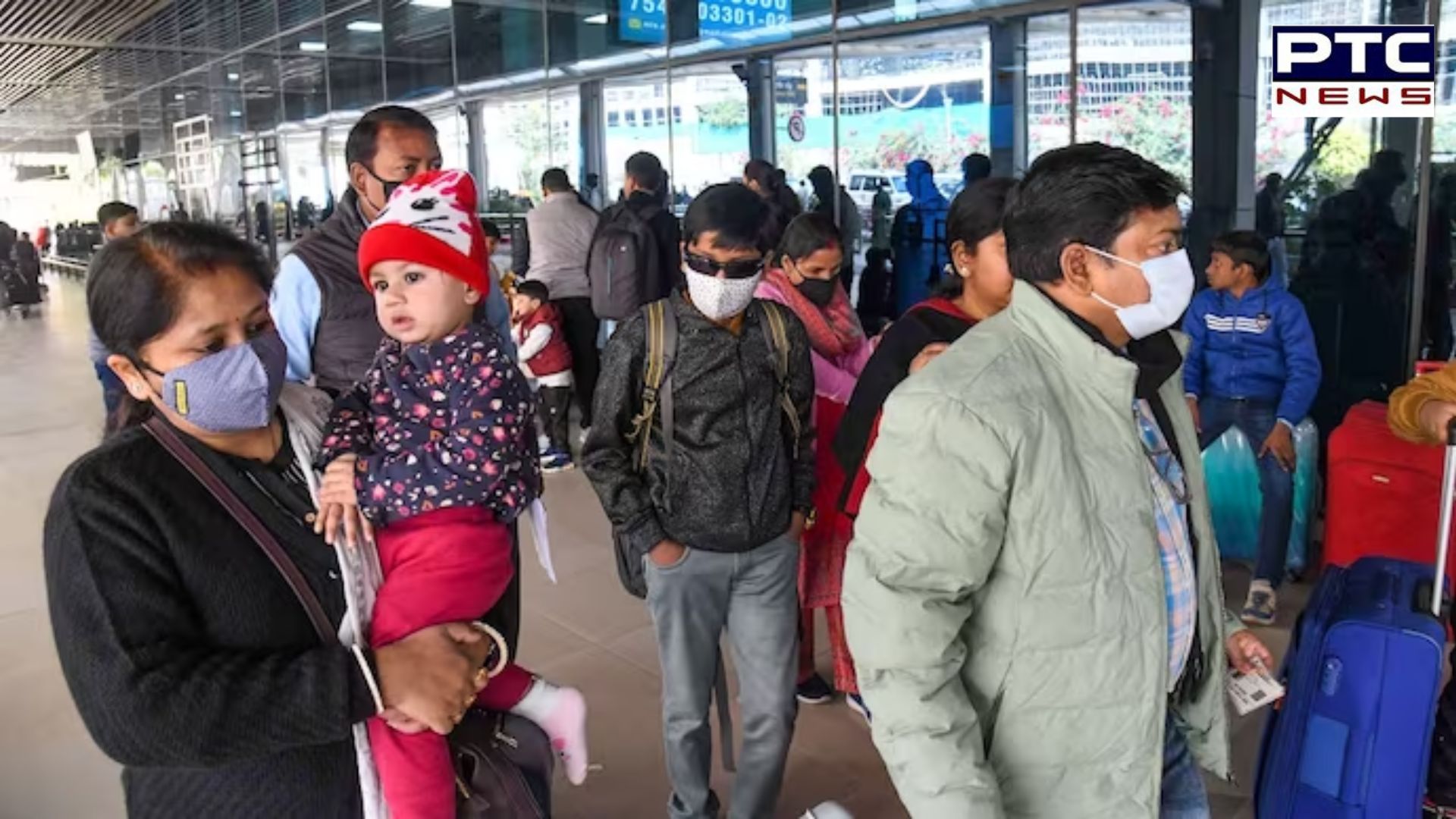

COVID-19 variants JN.1, Omicron, BA.2, BA.5: Detected in December, why?
Covid-19 variant: The reappearance of a new Covid-19 variant, JN.1, grips the world yet again, sparking inquiries into the recurrent December surges. Understanding this pattern of emergence becomes crucial amidst ongoing concerns.
As the world prepared for the turn of the decade in 2019, the emergence of an unprecedented virus from China reshaped global existence. Four years on, Covid-19 persists, evolving in myriad forms. This December, the JN.1 strain, a new face in the Covid-19 saga, commands attention. Classified as a "variant of interest" by the WHO, it carries a low public health risk. December's significance in Covid-19's evolutionary history dates back: Alpha (B.1.1.7), Beta (B.1.351), and Gamma (P.1) surfaced in December 2020, followed by the Omicron upheaval in December 2021. In 2022's December, while major variants remained dormant, subvariants within the Omicron lineage like BA.2 and BA.5 gained prominence, echoing a recurring trend.
/ptc-news/media/media_files/uulaUDvBV0PJg5PzzftU.jpg)
This cycle underscores December's pivotal role, marking the inception of the novel coronavirus in 2019. Unraveling the mystery behind December's recurrent variant appearances becomes paramount. But before delving into this pattern, understanding the implications of the JN.1 variant becomes essential.
What is JN.1?
The recently identified mutation of the coronavirus, named JN.1, has earned the classification of a 'variant of interest' by the World Health Organization (WHO) owing to its rapid global spread. It has surfaced in multiple nations, including India, China, the United Kingdom, and the United States.
/ptc-news/media/media_files/FA130iwZdjI10BS6ErZQ.jpg)
Belonging to the BA.2.86 lineage, a branch stemming from the Omicron or B.1.1.529 strain of SARS-CoV-2, JN.1 presents an additional mutation in the spike protein. Dr. G C Khilnani, Chairman of the PSRI Institute of Pulmonary, Critical Care, and Sleep Medicine, highlighted that this new variant predominantly triggers mild symptoms like fever, sore throat, cough, and headaches. However, it poses potential risks for vulnerable populations such as the elderly, obese individuals, those with COPD, diabetes, cancers, and others.
December, synonymous with holidays worldwide, historically played a significant role in Covid-19's global dissemination since its emergence in China. The festive season in both Northern and Southern Hemispheres, encompassing Christmas and the lunar new year, facilitated the virus's global traversal.
In 2023, the advent of the JN.1 variant is once again leveraging the holiday season's heightened mobility. Dr. Dipu while talking to India Today emphasised that increased social gatherings during this time foster closer contact among travelers and locals, hastening viral transmission. International travel, gradually regaining pre-pandemic momentum, undoubtedly contributes to viral proliferation. Nevertheless, experts stress that travel serves as an amplifying factor rather than the primary cause behind the current surge.
/ptc-news/media/media_files/pIjJd0jLfORiIjFPYCs9.jpg)
Regarding public response, experts advise against panic but underscore the need for caution, acknowledging the evolving nature of human behavior. Dr Devashish Desai from Ruby Hall Clinic emphasised vigilance, particularly among individuals with comorbidities, the elderly, the obese, and the unvaccinated, as cases linked to the JN.1 variant rise.
Vaccination and mask-wearing remain robust defenses against viral infections. The WHO reaffirms the efficacy of current vaccines in averting severe illness and fatalities caused by JN.1 and other circulating SARS-CoV-2 variants. Amidst year-end festivities, fortifying our immune defenses with vaccines and masks becomes crucial. Recognising the lurking threat of the invisible nemesis, it's imperative to echo the proactive measures adopted previously, as vigilance remains paramount.
Amidst the recurrent surge in Covid-19 cases during December, investigations delve into the seasonal pattern's impact.
Numerous scientific inquiries highlight winter's cold, dry climate as a potential catalyst for the escalating Covid-19 cases. A study documented in the journal Nature scrutinised the onset of the Delta-driven second wave, linking it to seasonal variations.
/ptc-news/media/media_files/jDpQKkZ9vQuCVg6qY8bO.jpg)
As summer transitioned to winter in the Northern Hemisphere, plummeting temperatures and drier air facilitated an aggressive Covid-19 resurgence. Similar findings were validated by researchers at China's Sichuan International Studies University, indicating a higher infection risk in colder environments.
According to experts a new variants emerge and immunity wanes, the 'new kid on the block' phenomenon persists, fueling recurrent infections. Winter's role as an accelerant for these mutations further amplifies concerns.
-
